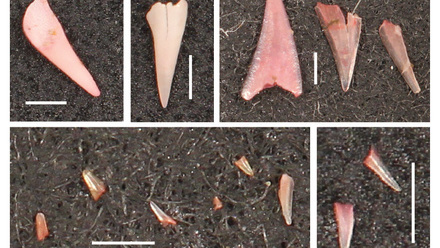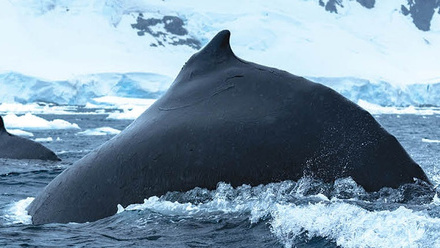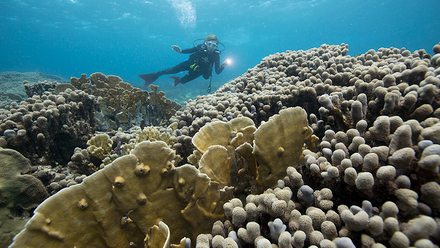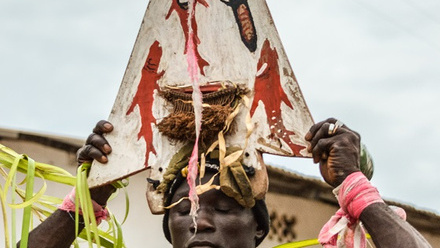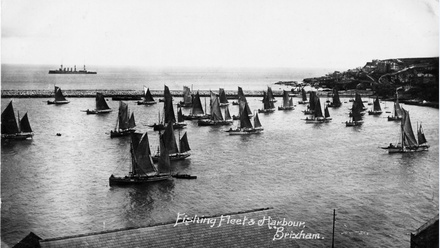How to find the right PhD
Vitalija Bartuseviciute
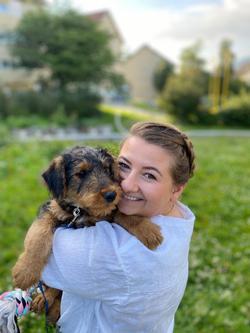
PhD: “Cost of life-history adaptations: Multiple trait consequences of fisheries-induced evolution.”
1. Please explain briefly what your PhD is and what stage you are at.
During my PhD I aim to evaluate the costs of life-history adaptations to external stressors, such as elevated mortality. I am utilizing a laboratory size-selectively harvested guppy population, using a cross-disciplinary approach connecting behavioral ecology, evolutionary biology, and parasitology to understand which co- evolving traits fisheries-induced evolution is shaping and how costs in populations experiencing strong directional selection on size are being paid. I am in the last year of my PhD writing up the results I have obtained from experiments.
2. Your PhD
a. How did you come across this PhD opportunity, and was it one of several you were considering?
After my MSc I was looking for a project involving experimental life-history evolution, and eventually I saw an advertisement for this PhD opportunity. I have been looking across the globe and found a few interesting projects in different labs, and at the very end I was choosing between a few PhD opportunities I was offered.
b. What made you choose this one?
There were several factors affecting my decision to choose this PhD. Firstly, passion for the subject; the project combined many areas I was interested in such as: behaviour, life-history evolution, host-parasite interactions. I liked that the current PhD project is a part of a bigger project and group. I was impressed by the papers published by this group and thought they do great and interesting science! Location and finances also played a role; Bergen is a beautiful city. Also, I wanted to dedicate myself to a PhD full time, without needing to work an additional part-time job to pay the bills.
c. Is there anything about the process of finding a PhD that you would have done differently in hindsight?
I am happy where I ended up but looking back I would have plucked up the courage to write to PIs (PrincipaI Investigators) to communicate about my research interests and ask for possible projects. Maybe I would have considered an internship in the lab before the actual PhD to see how things work.
3. How did you find the step up from undergraduate / Master studies, and do you feel supported?
For me, it was a steep learning curve from MSc to PhD studies. I found it challenging both mentally and professionally. At the same time, challenges allow for self-growth. I am very grateful to my supervisors for always being my reliable companions, with whom I could be myself and openly share my successes and failures. I think many of us found Covid challenging.
4. What opportunities do you envisage opening up as a result from your studies?
I feel in these few years I have grown a lot professionally and personally. I hope I will be able to pursue a Postdoc in my field and answer more open questions in science. However, during my PhD I have developed not only scientific, but also leadership and soft-skills, which I am sure will be useful both inside and outside of academia.
5. Do you have any general advice you would offer to an undergraduate considering a PhD?
I think generally take the time to find a topic which really interests you. I would encourage you to find the time and talk to the PIs before the project starts to see how the chemistry works between you. If possible visit the laboratory or institution and talk to the previous students. Taking a PhD should not be a rushed decision. Your personal relationship with supervisor is going to affect your work together, I find it is much easier to work with people you like and share similar work ethics.
Itziar Burgués Martinez
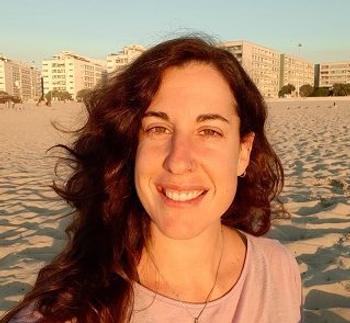
PhD: “Sponge Pellets production: A key process on the Carbon and nutrient cycles, and on the bentho-pelagic coupling in the Coraligenous habitat.”
1. Please explain briefly what your PhD is and what stage you are at
Right now I am starting the second year of a PhD in marine ecology, studying nutrient cycles in benthic communities and especially trying to understand the role sponges have in them. In my first and second years the plan is to run aquaria and field experiments, collecting and processing samples for stable isotope analysis and gather data about the sponge community at the study site in the western Mediterranean Sea. Basically a lot of experimental and lab work at the moment.
2. Your PhD:
a. How did you come across this PhD opportunity, and was it one of several you were considering?
I have always been curious about how nature works, where the different organisms live, and understanding their life strategies. Marine ecology was always my field of interest, so I looked into PhD opportunities in a field that I am really passionate about.
Before starting the PhD on marine ecology, I was working on a totally different research topic for several European projects, focusing on the Ecosystem Services of aquaculture and recreational activities in the sea. This was fascinating and I did consider starting a PhD in this topic. But it was really far away from naturalistic and baseline scientific questions in marine ecology and also from fieldwork, which is one of the things that I enjoy the most.
I decided to apply for a different PhD position in benthic marine ecology looking specifically into an ecological question that was appealing and interesting, regardless of the country or the specific organism. So I ended up looking into how sponges feed, and what is their contribution to the whole ecosystem, which to me, are very interesting marine ecology questions.
b. What made you choose this one?
As I was working on Ecosystems Services topic, the idea of developing a PhD in that area came up, along with the support of my supervisors at that time. But as I said above I wasn’t that sure about that specific area and I preferred to do a PhD in a topic I am really passionate about.
To be honest, I didn't get to choose from the different opportunities I applied for, as my applications for most of them were rejected.
When this opportunity was published I contacted the Principal Investigator of the project before applying. I liked very much the fact that my supervisors were real experts on benthic marine ecology, having been researching the same topics in the same area for many years. The opportunity to work in a small team was a privilege and very different from my previous work.
What made me choose this one was the topic and the scientific question, and the supervisor’s background and experience in the field. Another thing that was important to me for taking this opportunity was that financial conditions were better for this opportunity in Spain than they had been.
3. How did you find the step up from undergraduate / Master studies, and do you feel supported?
I wasn't clear if I wanted to pursue a PhD right after graduation. Between finishing my graduate studies in 2011 and starting my PhD in 2021 I had different jobs in several countries, from being a research assistant, field technician in research centres, an environmental educator, and also in the diving and tourism industry.
Once I was clear about what I wanted the steps came naturally. I enrolled in a Master's for two years, from where I planned to continue with my PhD. However, this didn't work out for me due to lack of funding at the time. So, I kept on applying to different HE opportunities that I came across in my area of interest until I got the contract for the PhD, the financial support and the supervisors support to complete it.
4. What opportunities do you envisage opening up as a result of your studies?
After finishing a PhD you can start to conduct your own research. Therefore, the next natural step would be to continue with a postdoctoral position where you can develop your own project, ideally with different collaborators to keep on growing as a scientist and continue the professional development.
Having a PhD also opens many opportunities in industry , or as a university lecturer. At the moment, I am more focussed on research.
I have found that older PhD students and Post-docs are a good source of information about opportunities here in Spain and other European countries. I am starting to be aware of the requirements for my next step in terms of publications, contributions, and academic records. One thing I see clearly is that it will be better to move to any other European country to continue with a postdoc position rather that staying where I am.
5. Do you have any general advice you would offer to an undergraduate considering a PhD?
My general advice to any undergraduate considering an academic path in marine research is to be persistent and hard-working.
Developing a career in marine science is usually time-demanding and involves long days in the field or the lab. Those considering a PhD need to be prepared for travel or long periods being on board research vessels.
Keep an open mind when looking for opportunities. Interdisciplinary working is key in marine science as everything is connected by the Ocean and marine scientists need to know a little bit of biology, chemistry, physics, data analysis, and writing skills. You can develop those skills in different jobs even unrelated to the organism or topic you are focused on, especially if you are surrounded by the right people with common interests. Building a community is super-important as well.
To summarize, just be passionate about what you do and the questions you are trying to answer because you will enjoy the path so much more and you are going to need that passion when things get difficult.
Joana Fernandes
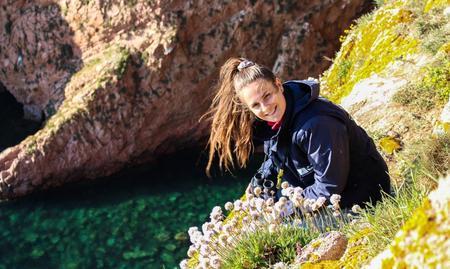
PhD: “Vulnerability or Tolerance: Amphipods’ responses to global change drivers across different climatic regions and generations.”
1. Please explain briefly what your PhD is and what stage you are at.
I am a 1st year PhD student in Biology and Ecology of Global Changes at University of Aveiro and NOVA University of Lisbon (Portugal) and Université du Québec à Rimouski (Canada). My PhD project focuses on the comparison of amphipods’ responses to global change drivers between different climatic regions and generations using a systems biology approach.
2. Your PhD:
a. How did you come across this PhD opportunity, and was it one of several you were considering?
Truly, this project was built by me and my supervisors. I finished my Master's and knew that I wanted to follow the same line of research and pursue other questions that remained unanswered in the Master's degree. So, we created this project, submitted it to a Portuguese funding call and we did it!
b. What made you choose this one?
Firstly, I am fascinated by trying to understand what will happen in our future under global changes. We still have so much to discover and interpret, especially from the organism to the cell. Also, discovering how different species from different climatic zones and over generations will respond is super-interesting.
c. Is there anything about the process of finding a PhD that you would have done differently in hindsight?
In my case, I don't think so, because I'm doing what I want and with whom I want. I think that one of the essential keys to moving on to a PhD is really enjoying what we do and what we're going to do. You have to feel that you are not obliged to do anything and find a supervisor’s team who will give you the support that you will need over 3/4 years.
3. How did you find the step up from undergraduate / Master studies, and do you feel supported?
I felt I had to take the next step because I really enjoy what I do, and I want to contribute to getting more answers in the science world. I realized that this was the natural step to take, because in science I have thought freedom and the stimulation of my critical spirit that I need daily. It is important to be surrounded by a team, family, and friends that support and motivate us to face problems and find solutions when things don't go as we expected.
4. What opportunities do you envisage opening up as a result from your studies?
A PhD is like getting a driver's license. If you want to create a career as a scientist, I think it opens the door to the bright future ahead. The PhD is an opportunity to broaden your thinking, establish strong networks, and consolidate your knowledge. However, in science we never know everything, it's just the beginning of a beautiful journey (I hope!).
5. Do you have any general advice you would offer to an undergraduate considering a PhD?
Think if this is really what you want for yourself. Think very carefully about the topic you like and that you want to work on, who you want to work with and where you want to work. It is very important that you think about these questions because it will be 3-4 years of your life. Resilience, motivation, and being proactive are the main qualities at this stage of your life.
Ashlie McIvor
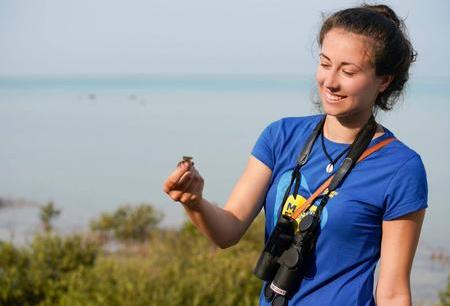
PhD: "Understanding how marine apex predators are impacted by anthropogenic pressures in a remote, insular habitat".
1. Please explain briefly what your PhD is and what stage you are at.
I’m a second-year PhD researcher at the University of Lisbon working with MARE-Madeira to assess how oceanic variability and anthropogenic impacts affect marine megafauna in Macaronesia.
2. Your PhD:
a. How did you come across this PhD opportunity, and was it one of several you were considering?
I found the call to the 'la Caixa' Doctoral INPhINIT fellowship through Twitter. This fellowship allowed me to choose from a list of projects offered by research institutions across Portugal and Spain.
b. What made you choose this one?
I chose this PhD as the proposed project would allow me to explore my interests in the movement ecology of pelagic predators while leveraging my background in oceanography to understand how they use their environment. Madeira archipelago is an insular island chain in the northeast Atlantic, providing a 'natural laboratory' to study the pelagic environment. In addition to the very competitive salary and training opportunities offered by “la Caixa”, it seemed like the perfect match.
c. Is there anything about the process of finding a PhD that you would have done differently in hindsight?
In hindsight, I think it is equally important to reach out to alumni, in addition to current students, of the lab you want to join. Getting a broader perspective from previous students allows you to manage your expectations before you embark on a PhD.
3. How did you find the step up from undergraduate / Master's studies, and do you feel supported?
I was fortunate enough to have a lot of experience from my Master’s studies which has allowed me to step into a PhD with many of the tools needed to conduct independent research.
4. What opportunities do you envisage opening up as a result of your studies?
I encountered several logistical problems at the start of my PhD. As a result, I have had the privilege of collaborating and networking with many great scientists outside my research centre. This has opened many doors for me, both inside and outside academia. I hope to continue this path where I can walk the line between academia and conservation management.
5. Do you have any general advice you would offer to an undergraduate considering a PhD?
In the end, a PhD is about persistence and problem-solving, and the relationship you have with your advisor(s) is just as important as the project itself. Make sure you ask your potential advisor all the hard questions so you know if they can be the advisor you need them to be.
Damiano Spagnuolo
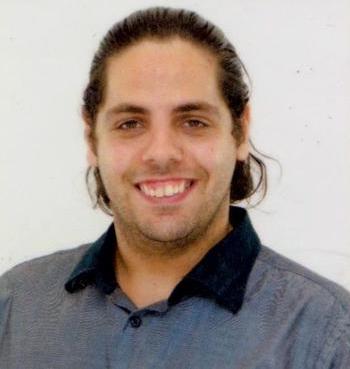
PhD: "Potential uses of algal biomass in economic activities"
1. Please explain briefly what your PhD is and what stage you are at.
I applied as a PhD student to the University of Messina, Italy, and started in 2019. I am now in my last year of the course writing up all the data I collected. My PhD project is about the use and cultivation of macroalgae in Europe, studying physiology and adaptation, and with a particular focus on the Mediterranean area. I was also working on many applications of seaweed, from agriculture to pharmaceutical, with a focus on sustainable extraction methods of bioactive molecules.
2. Your PhD:
a. How did you come across this PhD opportunity, and was it one of several you were considering?
I applied to Messina because I did my Master's degree here and I really like the marine biology department. I also applied for a few other PhD opportunities in Italy and for several jobs: You must have a plan B at all times!
b. What made you choose this one?
I choose to apply a PhD because I think that to specialize in marine biology, and particular phycology, is very important to specialize and work as a complete the journey.
c. Is there anything about the process of finding a PhD that you would have done differently in hindsight?
I am happy with the choices I made, even considering that because of Covid restrictions I had to be adaptable with options and periods abroad.
3. How did you find the step up from undergraduate / Master studies, and do you feel supported?
The transition between taught courses and a PhD is not so 'natural'. The PhD is often similar to a researcher's job, so you have to be very independent, flexible and adaptable; always ready for new and stimulating collaborations. It depends on the country of origin, but there are trade associations that help to deal with the bureaucratic activities and practical problems that a doctoral student may encounter.
4. What opportunities do you envisage opening up as a result from your studies?
I established many collaborations with academics in other countries, but also with companies that were trying to scale-up research to meet industrial and commercial needs. I hope to apply for a Postdoc, maybe abroad, but I really want to continue my career in academia. There are many incentive projects in applied phycology that I really want to pursue.
5. Do you have any general advice you would offer to an undergraduate considering a PhD?
A PhD is not an easy path, but it will help if you cultivate relationships and take opportunities as they arise. This way you can build your network and maximize opportunities for jobs and growth, both personal and professional.
I would also like to remind future PhDs that as students we have a lot of opportunity to continue to learn and apply what we are studying, and immerse ourselves in the world of research. It is a path made up of great sacrifices and self-denial, you must absolutely love what you do but above all choose the right compromise between geographical location, workplace, and collaborations, so as to be able to complete your project.
Antonia Uthoff
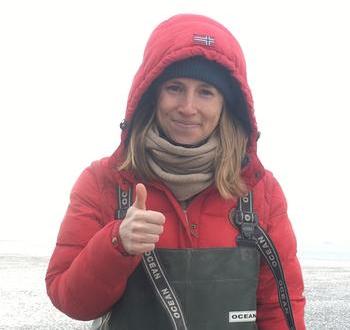
PhD: “Marine microplankton communities under climate change.”
1. Please explain briefly what your PhD is and what stage you are at.
I am currently in the second year of my PhD in micro-plankton ecology at the Alfred-Wegener-Institute in Bremerhaven in connection with the University of Bremen. My project investigates how environmental change affects the taxonomic and functional community composition of Arctic and temperate micro-plankton, why specific members prevail and what this means for overarching ecosystem functions.
2. Your PhD:
a. How did you come across this PhD opportunity, and was it one of several you were considering?
A professor at the University where I conducted my Master‘s dissertation pointed out to me a call with several PhD positions at the AWI and I applied for three different positions within this same call.
b. What made you choose this one?
I was offered two PhD positions at the same time and chose the one I am doing now for the topic, which fascinated me a bit more than the other. The location of Bremerhaven was rather an opposing factor but I still accepted the offer because I loved the topic, the funding was secured, the AWI is a renowned institute and after all I am now living in a really lovely city nearby.
c. Is there anything about the process of finding a PhD that you would have done differently in hindsight?
Not really, as I was lucky in being pointed towards the position—it is always good to ask senior scientists you look up to for their advice on possible PhD positions and specific working groups.
3. How did you find the step up from undergraduate / Master studies, and do you feel supported?
You certainly have to be much more independent in your work than during the Master's studies. I did struggle a bit with insecurities at the start as I switched to a completely new topic compared to what I‘ve done in my undergrad or postgrad. But at AWI we are supervised by a thesis committee and they certainly helped me to overcome this phase and now I feel very confident about pursuing my own research. I suppose this step would be easier to take if you continued your PhD in a topic and working group which you already know well.
4. What opportunities do you envisage opening up as a result from your studies?
I hope to be able to start a career in science after my PhD as I like every aspect of what I am doing at the moment. But doing the PhD certainly gave me skills that are useful for other jobs or life in general as well.
5. Do you have any general advice you would offer to an undergraduate considering a PhD?
If they already have a topic or working group they know and like I would consider it best to try and get funding to start a PhD there. Becoming an independent researcher might be easier this way as you already know your way around the lab and the literature. If this is not possible (or not wanted), try to talk to other PhDs or students in the working group you are considering to do your PhD at. There are always things that can go wrong like crashing experiments, breaking machines, or cancelled expeditions. Having a nice working environment makes it much easier to cope with all these challenges. Also, I would always prefer a university or institute which offers graduate schools and thesis committees for support.
Amanda Schadeberg
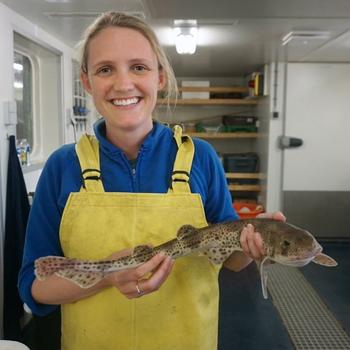
PhD: "Knowledge production, uncertainty and anticipatory governance for the mesopelagic zone."
1. Please explain briefly what your PhD is and what stage you are at.
I am a social scientists and my PhD is about the governance of mesopelagic fisheries. I am studying how marine scientists and other actors are anticipating fishing activity in the deep ocean and what that might mean for its future. PhD programs in the Netherlands are usually 4 years, of which I am in my 3rd year, though I will be applying for a six-month extension to compensate for the massive disruptions caused by the Covid-19 pandemic.
2. Your PhD:
a. How did you come across this PhD opportunity, and was it one of several you were considering?
I was actively looking for PhDs and heard about this position through a colleague as well as seeing the posting online in my Twitter network and a PhD position website. As for other options, I used to work at a research institute affiliated with my current university, and there was a possibility to pursue a PhD part-time there. I considered it closely, as I loved the work, but after speaking to others who had taken that option I decided to focus on the PhD on its own. I was also looking for PhDs in my home country, Australia.
b. What made you choose this one?
In the end I decided to pursue my current PhD for several reasons. First, Wageningen University is one of the most exciting places to be for an environmental sociologist like me and I found the PhD topic to be fascinating. Furthermore, the pay and employment conditions in the Netherlands are very good compared to elsewhere (like Australia, which I was seriously considering). Finally, it would be less disruptive for my personal life as my partner and I had settled in the Netherlands a few years earlier and were just benefitting from a sense of ‘home’. With this opportunity it just felt too early to move on again!
c. Is there anything about the process of finding a PhD that you would have done differently in hindsight?
I would have asked more questions during the interview process. I was just so honoured and excited to be considered for the position that I was keen to answer the questions asked of me, but in hindsight I would have made it more of a conversation than an interview. For those who are looking for PhDs now, I think it is useful to ask about the culture of the group you will join: do they have regular social events? Do PhDs ever co-author papers with people other than their supervisors? What are the challenges the group faces? How many PhDs has your supervisor successfully guided through the process? You can even ask to get in touch with a current PhD student in the group to ask them a few questions as well. Liking your topic is important, but no matter how passionate you are you will need support through the PhD process from a happy and collaborative group!
3. How did you find the step up from undergraduate / Master studies, and do you feel supported?
After my undergraduate studies I worked for one year before doing a two-year research Master's, which was a sort of pre-PhD Master program. Most of my classmates had the ambition to do a PhD and most of us are doing just that, so in that sense the Master's prepared me very well. I definitely would not have been equipped for a PhD in the Netherlands without a Master's degree! I also worked in a research institute as a junior researcher for roughly 18 months in between my Master and PhD which was also incredibly useful when I actually began the PhD. I learned about project management, collaboration styles, and many other professional skills that are useful in the PhD process. I was worried that I would be ‘too old’ for the PhD (I’m only 30!) but in my program there are many people who have taken detours just like me.
4. What opportunities do you envisage opening up as a result from your studies?
That is difficult to know in advance! It is hard to know now how my PhD will be valued on the job market, and what opportunities it will bring. Thanks to my work I have a wide international network so there are lots of possibilities, and I think a PhD gives you lots of transferable skills for many careers. The big decision lying ahead is whether or not to pursue a career in academia or to step into something else. At this stage I am open-minded. Working in a university has a lot of attractive features, but moving to a different type of organisation might be the right step for me when I’m done. Time will tell.
5. Do you have any general advice you would offer to an undergraduate considering a PhD?
Don’t rush into it! It’s ok to take some detours in life, and the experience will help you when it comes time to do the PhD. Get some practical experience in a field you are interested in if you have the opportunity, and after a while you can evaluate whether or not you want to commit to a PhD. It’s very hard work, so it’s not a decision to take lightly! And if you decide to take the PhD path, invest early in your mental health. If your university has a counsellor or coach, make use of their expertise – it’s what they’re there for. At times PhD work can be lonely and insecure, so learning how to take care of your mental as well as your physical health along the way will help you when times get tough.


